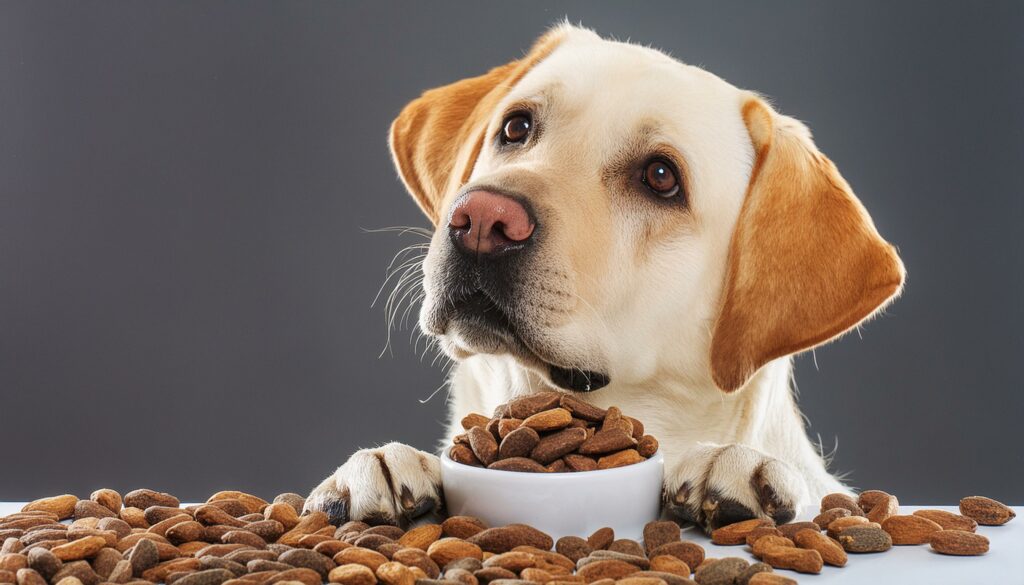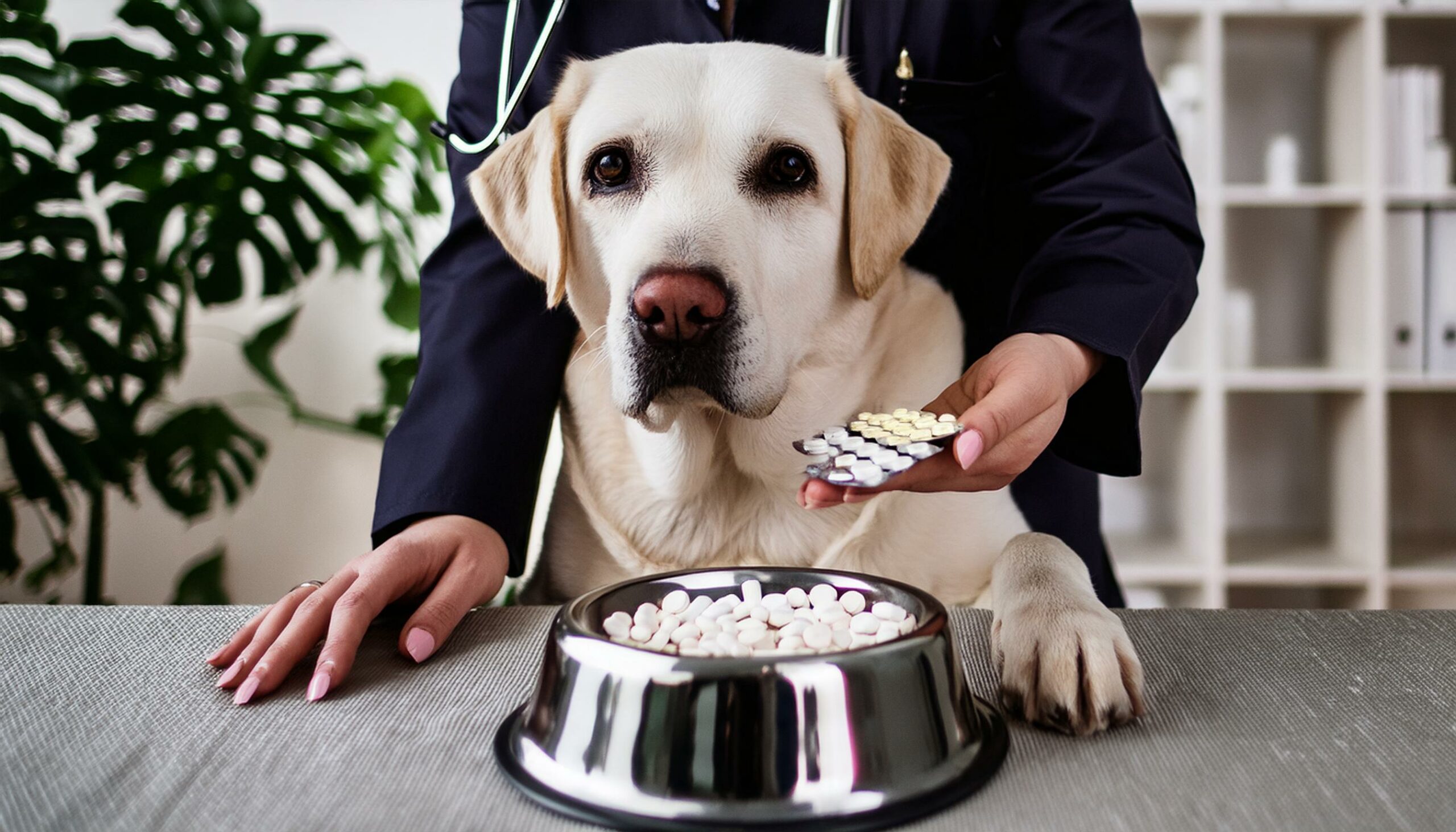Labradors are not just our pets; they are members of our families. As such, it’s crucial to ensure they receive the proper nutrition to support their overall health and well-being. In this comprehensive guide, we’ll explore everything you need to know about feeding your Labrador daily, including essential nutrients, recommended food intake, choosing the right dog food, feeding schedule, common foods to avoid, supplements, special dietary considerations, and more.
Essential Nutrients for Labradors
Protein
Protein is the building block of your Labrador’s diet. It’s essential for muscle development, repair, and overall growth. High-quality sources of protein include chicken, turkey, beef, and fish. Aim for dog foods with protein listed as the primary ingredient.
Carbohydrates
Carbohydrates provide energy for your Labrador’s daily activities. Opt for complex carbohydrates such as brown rice, sweet potatoes, and oats. These sources offer sustained energy levels and aid in digestion.
Fats
Healthy fats are crucial for maintaining your Labrador’s skin and coat health. Omega-3 and Omega-6 fatty acids, found in sources like salmon, flaxseed, and canola oil, promote a shiny coat and support overall immune function.
Vitamins and Minerals
Ensure your Labrador’s diet is rich in essential vitamins and minerals, including vitamins A, E, and D, as well as calcium, phosphorus, and zinc. These nutrients are vital for bone health, immune function, and overall well-being.
Recommended Daily Food Intake
The amount of food your Labrador needs daily depends on various factors, including age, weight, activity level, and metabolism. Consult with your veterinarian to determine the appropriate portion size for your dog. It’s essential to monitor your dog’s weight regularly to prevent overfeeding, which can lead to obesity and related health issues.
Factors affecting food intake include age, weight, activity level, and metabolism. It’s crucial to consult with your veterinarian to determine the appropriate portion size for your Labrador.
Choosing the Right Dog Food

When selecting dog food for your Labrador, prioritize high-quality ingredients. Look for labels that meet the AAFCO (Association of American Feed Control Officials) nutritional standards to ensure your dog receives complete and balanced nutrition. Avoid products containing fillers, artificial preservatives, and additives.
Home-cooked vs. Commercial Dog Food
Deciding between homemade meals and commercial dog food depends on your lifestyle, budget, and your dog’s specific dietary needs. While homemade meals offer control over ingredients, commercial dog food often undergoes rigorous testing to ensure nutritional adequacy. Whichever option you choose, ensure your Labrador’s diet is balanced and meets their nutritional requirements.
Feeding Schedule
Establish a consistent feeding schedule for your Labrador, offering meals at the same times each day. This helps regulate their metabolism and prevents overeating. Avoid leaving food out all day, as this can lead to weight gain and digestive issues. Monitor portion sizes to maintain a healthy weight for your dog.
Common Foods to Avoid
Certain foods are toxic to dogs and should be kept out of reach. These include chocolate, grapes, onions, garlic, fatty scraps, bones, and foods high in sugar. Additionally, be cautious of foods that can cause digestive issues, such as dairy products and spicy foods.
Supplements for Labradors
Supplements can be beneficial for supporting your Labrador’s overall health. Omega-3 fatty acids help reduce inflammation and support heart health. Glucosamine and chondroitin aid in joint health, especially as your dog ages. Consult with your veterinarian before adding supplements to your dog’s diet to ensure they are safe and appropriate.
Water Intake
Proper hydration is essential for your Labrador’s health and well-being. Ensure they have access to fresh, clean water at all times, and monitor their water intake, especially during hot weather or after physical activity. Dehydration can lead to serious health problems, so it’s essential to encourage your dog to drink an adequate amount of water daily.
Special Dietary Considerations
Some Labradors may have food allergies or sensitivities to certain ingredients. Common allergens include grains, poultry, and certain proteins. If your dog experiences digestive issues, skin problems, or other allergic reactions, consult with your veterinarian to determine the best diet for their specific needs.
Monitoring Your Labrador’s Health
Regular veterinary check-ups are essential for monitoring your Labrador’s health. During these visits, your veterinarian can assess your dog’s weight, overall condition, and detect any nutritional deficiencies or underlying health issues. Pay attention to changes in appetite, weight, energy levels, and coat condition, as these can indicate potential health concerns.
Making Dietary Adjustments
As your Labrador ages or experiences changes in activity level, you may need to adjust their diet accordingly. Senior Labradors may require fewer calories to maintain a healthy weight and may benefit from added supplements to support joint health and mobility. Consult with your veterinarian for personalized dietary recommendations based on your dog’s age, health status, and lifestyle.
Sample Daily Meal Plan
- Breakfast: High-quality kibble mixed with lean protein, such as chicken or turkey.
- Lunch: A small portion of dog-friendly vegetables, such as carrots or green beans, or a few pieces of fruit, such as apple slices.
- Dinner: Another serving of kibble with a side of cooked brown rice or sweet potatoes for added fiber and nutrients.
Training Treats
Use small, healthy treats during training sessions to reinforce positive behavior and obedience. Opt for low-calorie options, such as small pieces of cooked chicken or freeze-dried liver treats. Remember to adjust your Labrador’s daily calorie intake accordingly to prevent weight gain.
In conclusion, providing your Labrador with a nutritious and balanced diet is essential for their overall health and well-being. By understanding their dietary needs, choosing high-quality ingredients, and establishing a consistent feeding schedule, you can ensure your Labrador leads a happy and healthy life. If you have any questions or concerns about your dog’s diet, consult with your veterinarian for personalized recommendations and guidance.
